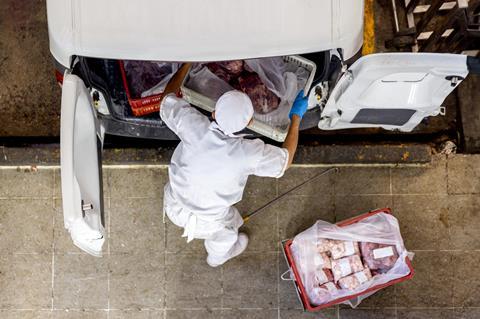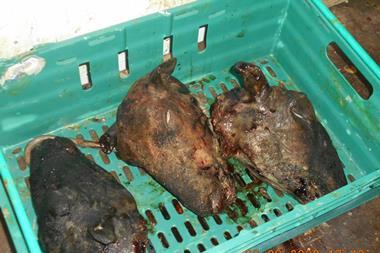
Long-awaited police-style investigatory powers for the Food Standards Agency’s National Food Crime Unit – giving the body a significant boost in capability – have come into force today (1 May).
The NFCU’s new powers in England and Wales, under the Police and Criminal Evidence Act (PACE), will enable the unit’s investigators to apply for and execute search warrants for the first time, with appropriate safeguards, and without the need to gain police support, the FSA said.
It would “help to protect consumers and businesses from food fraud more effectively”, the food safety watchdog added.
Tackling food crime
The move follows a long-standing campaign by both the FSA and food safety experts for an upgrade in capability for the NFCU, and comes a decade after the unit was created, in the wake of the Horsegate scandal of 2013.
While it has steadily increased its staffing numbers over the past 10 years – with the unit now employing 80 people and funded by a £5.5m budget each year – it has, until now, required the assistance of the police to enter into food crime investigations.
Speaking in 2021, food fraud expert Professor Chris Elliott – who led the post-Horsegate review which included a recommendation for the creation of a food crime body – said the NFCU, despite moving towards a phase two of development in 2018 giving it limited investigatory powers, still had insufficient capability “to undertake complex fraud investigations”.
It comes amid mounting concerns that the UK’s food fraud threat – put at a cost of £2bn a year by the FSA’s 2024 Food Crime Strategic Assessment – continues to grow, following a spate of recent scandals ranging from a major beef fraud in 2023 to fake vodka, contaminated chocolate and olive oil frauds last year.
Experts such as Elliott are warning that issues such as Brexit, global conflict and inflation in areas such as beef – which is seeing record-high farmgate prices – are a recipe for further instances of fraud, hastening the need for an enhanced capability for the NFCU.
Read more: Mislabelled chocolate, fake olive oil: the UK’s food fraud threat is growing
The FSA has also highlighted “recent NFCU operational activity” and not having the ability to access certain powers as a “disadvantage” in its ability to tackle food fraud.
Speeding up investigations
The unit’s upgrade was therefore described as “of huge importance in the ongoing fight against food crime”, by Elliott, a professor of food safety and microbiology at Queen’s University Belfast.
“The ability to enter and search premises immediately following the arrest of suspects will make it much more difficult for criminals to dispose of incriminating evidence and cover their tracks,” he said.
“I have supported this advance in the unit’s powers for many years and am delighted to see them coming into force. The many bona fide food businesses and UK consumers will be better protected as a result.”
The NFCU’s upgrade was hailed as a “vital tool to ensure that NFCU investigations can be progressed more directly and effectively”, by the unit’s head, Andrew Quinn.
“Our investigators will be able to apply for and execute search warrants, increasing our ability to respond quickly to intelligence and continue to ensure swift action is taken to tackle food fraud,” he added.
“We’ll still be working closely with partners like police and local authorities, and our new powers will free up their vital resources so they can be diverted to other priorities while we have more capabilities to protect legitimate businesses and consumers.”
Making sure our food was “authentic and safe for the British public to consume is vital, which is why it was essential to boost the National Food Crime Unit powers to tackle food fraud”, said minister for food security and rural affairs Daniel Zeichner.
“More broadly our cross-government food strategy will make sure our food system can continue to feed the nation, realise its potential for economic growth, and protect the planet and nourish individuals, now and into the future.”



















No comments yet